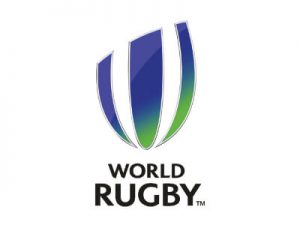
World Rugby has published guidelines for the safe return to rugby activities in the context of the COVID-19 pandemic via its player welfare website.
- Guidelines intended to assist unions and competitions in devising own framework that is compliant with respective national social-distancing and travel environment
- Detailed document outlines phased approach to returning to training and playing
- Guidance developed in full collaboration with union chief medical officers, International Rugby Players and infectious diseases experts
World Rugby has published guidelines for the safe return to rugby activities in the context of the COVID-19 pandemic via its player welfare website at playerwelfare.worldrugby.org/covid-19.
Developed by medical experts following consultation with union chief medical officers, competition owners and players, the guidelines are intended to assist unions, clubs and competitions in creating a framework and policy for return to rugby activity within their respective jurisdictions.
Unions and competition owners will need to comply with local laws and policies implemented by government or local authorities in relation to COVID-19, including social distancing and travel measures.
For the avoidance of doubt, this does not mean that matches will have to be played behind closed doors until a vaccine is available – the strategy will be determined by the respective national government directives.
The guidelines have two core sections containing important information.
- The first section provides safety information to everyone involved in the game including players, coaches, support and administrative staff
- The second section provides a framework around which national unions can prepare best-practice policies and guidelines for return to activity that are appropriate to their local setting, complying with national guidelines on social distancing and travel restrictions
The guidelines, which are World Health Organisation (WHO) compliant, outline three dedicated time-bound return-to-training phases – small group training, full group non-contact training and full contact training.
It also documents the environment for returning to match action in a domestic, cross-border and cross-continent context and processes for facility and stadium preparation.
World Rugby also stresses that, as a live document operation in a dynamic pandemic context, it will be updated regularly with unions informed of any modifications. Further language versions will be available shortly.
World Rugby Chairman Sir Bill Beaumont said: “We are all missing the sport that we know and love, and while it is difficult not to be playing or training, advice by the respective governments and authorities must be adhered to.
“World Rugby, in full partnership with unions and players, has been busy behind the scenes ensuring that everything is in place for a safe and speedy return to the sport when it is appropriate to do so.
“This includes delivering best-practice coaching, refereeing and conditioning webinars, resources and Apps and, of course, a phased roadmap for the sport’s return to training and playing.”
World Rugby Chief Medical Officer and guideline co-author Dr Éanna Falvey added: “We have been working in full collaboration with unions, regions, competitions and players in preparing a set of guidelines that are WHO compliant in a rugby context.
“They outline all the necessary considerations and steps for players, coaches, clubs, unions and competitions and will be updated regularly as the advice and environment evolves.
“Initial feedback has been extremely positive, and it is certainly prudent that we have a standardised and ready-to-mobilise approach when it is safe and appropriate to resume steps towards playing in the context of easing social-distancing measures.”
The guidelines were authored by Falvey, Dr Martin Raftery (World Rugby), Prav Mathema (Welsh Rugby Union), Prof Mary Horgan (consultant physician of infectious diseases) and supported by data collected through regional COVID-19 steering group chairs who consulted with World Rugby’s 124 national member unions.
